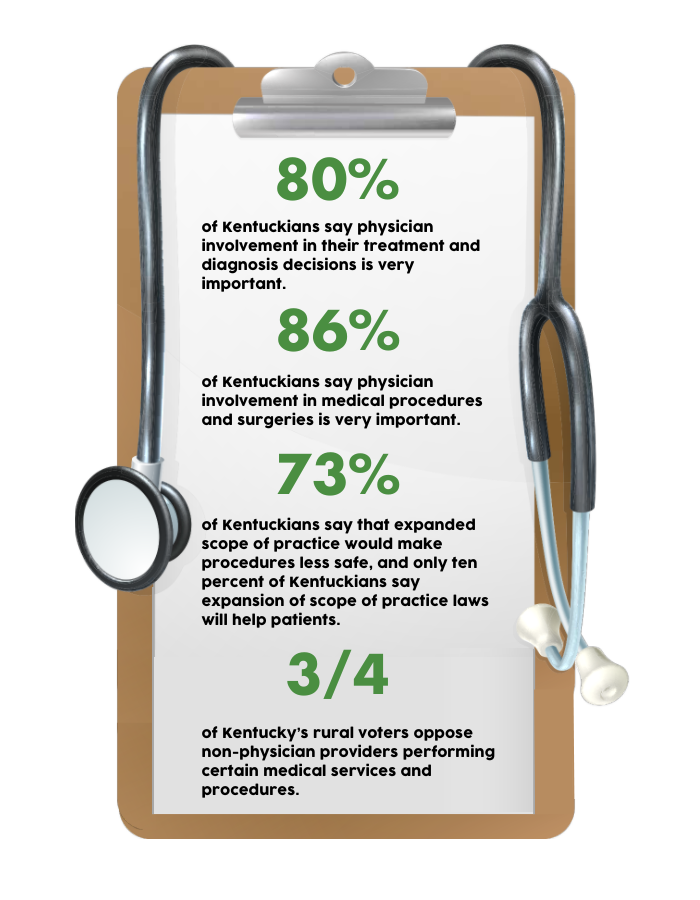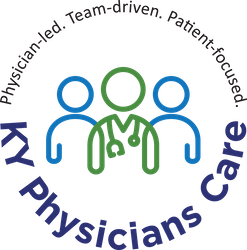

Physician-led, team-based care has proven effective in delivering safe, quality, accessible health care, leading to better health outcomes for all Kentucky patients. This approach ensures that three very important elements of care are always at the forefront.
Access to healthcare is a critical part of living a healthy life, and all Kentuckians stand to benefit from physician-led, team-based care in their communities. With 94% of Kentucky’s 120 counties facing a primary care shortage, we must advance thoughtful policies that grow the physician workforce while freeing up existing physicians to focus more on patient care. The solution for greater access to care is not to expand scope of practice laws for non-physician providers.
To address care shortages and develop the physician-led care teams we need for a healthier Kentucky, we must invest in programs to help recruit and retain more physicians, such as graduate medical education (GME) funding and loan repayment programs and reduce time-consuming administrative burdens.
Quality care makes a difference when it comes to health outcomes—and physicians can help lead the way. With more than a decade of education and training, physicians are highly qualified to oversee, direct and ensure safe medical procedures, surgeries and overall care. Research from the Mayo Clinic shows that patient referrals from physicians ranked higher in quality than referrals from other providers because physicians were able to better articulate clear questions, provide clinical information and help patients understand and feel confident in their health.
Physician-led, team-based care can help control costs within our health care system. Recent studies from a health care clinic in Hattiesburg, Mississippi and Stanford University found that care delivered under the guidance and oversight of a highly trained physician led to fewer emergency room visits, fewer hospital admissions and readmissions, shorter hospital stays and overall lower health care costs. This is because when patients trust the qualifications, experience, and expertise of the providers delivering their care, they are more likely to adhere to implement healthcare recommendations and adhere to proposed treatment plans.


With more than a decade of rigorous education, clinical training and hands-on experience, physicians are uniquely trained and qualified to lead your health care journey with the support of your full care team. Physicians and non-physicians bring different skills, experience and training to the field, which is why it’s important they play as a team.
While patients strongly support a physician-led health care team, 35% of patients don’t know the qualifications of their health care providers.



Join us in letting Kentucky legislators know that a physician-led, team-based approach to health care is the best medicine for Kentucky.

Kentuckians are most comfortable with a highly trained physician overseeing their healthcare. A recent (Dec. 2022) statewide survey conducted for the Kentucky Medical Association by an independent polling organization found that Kentucky patients overwhelmingly trust and want physician-led, team-based care.


Kentuckians are most comfortable with a highly trained physician overseeing their healthcare. A recent (Dec. 2022) statewide survey conducted for the Kentucky Medical Association by an independent polling organization found that Kentucky patients overwhelmingly trust and want physician-led, team-based care.



